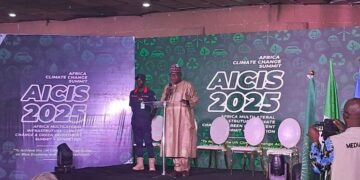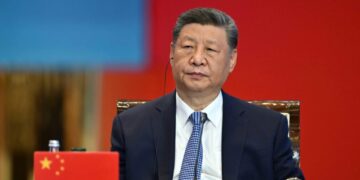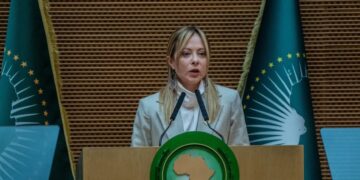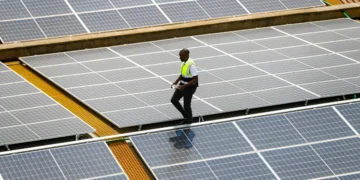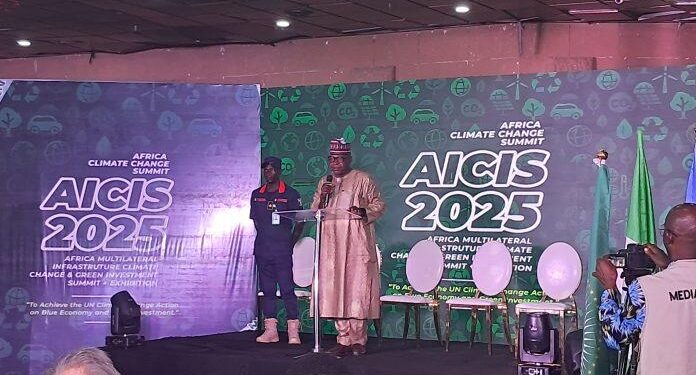By Ebi Kesiena
In a decisive move to address the escalating impacts of climate change across the continent, policymakers, industry leaders, environmental experts, and development partners have gathered in Abuja for the maiden edition of the Africa Infrastructure and Climate Summit (AICIS).
The high-profile event aims to develop actionable strategies and innovative solutions to strengthen Africa’s resilience, bridge infrastructure gaps, and promote sustainable development in the face of worsening climate threats.
Delivering a keynote address at the summit, President Bola Tinubu underscored that climate change is not merely an environmental issue but a pressing security challenge with far-reaching implications for Africa’s stability, food systems, and economic growth.
Represented by Secretary to the Government of the Federation, Sen. George Akume, the President noted that that rising temperatures effect of climate change was already displacing communities, and threatening livelihoods across the continent.
He called for a bold, coordinated, and continent-wide response that combines political will, innovative technologies, and substantial investments in climate-resilient infrastructure.
‘‘Nigeria is implementing a robust climate action framework aligned with the Paris agreement and African agenda 2063. We are investing in renewable energy and advancing clean technology, our goal is to build resilience for our people, empower our youths and create green jobs that fuel prosperity ’’ he said
The convener, Mr. Moses Owharo, explained that the summit’s core objective will develop lasting, practical solutions to the escalating impacts of climate change across Africa. He emphasized that the gathering seeks to inspire actionable commitments, stating, “Our collective vision is to leave a legacy of sustainability and prosperity for both present and future generations.”
Meanwhile, speaking on the sidelines with our correspondent, Engr. Ebi Ogionwo, Deputy Director of Health, Safety, Environment, and Community for the Nigerian Midstream and Downstream Petroleum Regulatory Authority (NMDPRA), underscored the importance of the Host Community Development Trust introduced by the Petroleum Industry Act (PIA) in 2021.

He explained that the Trust was designed to make host communities active partners in oil exploration, production, transportation, and distribution. According to him, a percentage of revenue from crude oil production is allocated to these communities for development projects, provided they safeguard oil and gas assets.
Engr. Ogionwo noted that this initiative creates a direct incentive for communities to protect infrastructure and curb pipeline vandalism, as any disruption would affect their share of revenue.
“The more they are able to produce in a sustainable manner, the more they benefit,” he said, adding that this approach encourages cooperation between host communities and operators while reducing third-party interference.
He further explained that most Host Community Development Trusts have already been formed and are operational, following extensive sensitization campaigns. This, he said, would not only channel more resources into community development but also sustain vital oil and gas infrastructure.
Mr. Ogionwo emphasized that this model aligns with broader climate and sustainability goals by fostering stability in oil-producing areas and enabling long-term investments in cleaner energy, including gas-to-power projects. “If communities know they benefit directly, they will protect the assets,” he concluded.
On the summit, he added that Nigeria has over 3,000 trillion cubic feet of gas that is stored underneath the ground which must be harnessed to the benefit of all Nigerians and to Africa at large.
‘‘So we are here to tell the world that we are ready, as Nigeria, to play a very important role and pivotal role in that direction’’
The two days summit brought together diverse stakeholders from government, private sector, and the diplomatic community.
